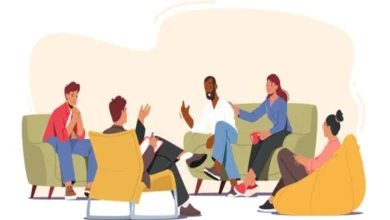8 reasons people don’t like you and how to fix it

Each of you in life has probably met people who treated you with undisguised hostility and even aggression. Communicating with them, you automatically wonder why they dislike you and how you did not please them. It is especially strange if you did nothing wrong to these people. It turns out that the whole point is in your qualities, which you considered extremely favorable. Which of them we are talking about, read further in this article…
8 personality traits that make people dislike you
It turns out that you are trying your best, believing that you will be appreciated, but you cause negative emotions in others. But the good news is that it can be fixed!
You strive to impress
Such people can be seen from afar. They have a staged gait and feigned behavior. And they also seem terribly positive, and this isn’t very pleasant. Others perceive them negatively, believing that such individuals are joking or just laughing at them.
To fix this, ask your friends and colleagues to tell you what they think of you. Attempts to please everyone look ridiculous and cause negative emotions in your interlocutors. So stop doing it!
You are an erudite person
Have you ever noticed how many ill-wishers are found around intelligent and talented people? All because they envy them. The more attention you pay to such individuals, the more difficult it is for you to voice ideas and voice your opinion. Sometimes people are overgrown with envious people from school and cannot get rid of them in any way.
Feel like it’s about you? Try to find a common language with your ill-wishers. Find out what they are interested in and show yourself so that envious people are interested in you and your ideas.
You spread rumors
Gossip is a lot of schoolchildren and unscrupulous journalists. And you are an adult who should not be interested in the details of other people’s personal lives. Stop spreading rumors and pay attention to yourself. Let your life be active, eventful, and positive.
You know too much
Being smart and being wise-ass are two big differences, and the line between them is very thin. You may not notice how you turn from an intellectual person into an “unpleasant know-it-all”, but your environment feels it.
If you are well versed in your profession, do not try to leave your opinion everywhere, but wait until they ask you. By the way, developing patience will help correct this situation. Work on yourself, and the result will not keep you waiting long.
You try to keep everything under control
According to psychologists, this behavior often means depriving yourself of the ability to control your own life. When you are unable to keep track of your affairs, you switch to others. Who will love this? Intervention in personal space, work, and affairs cause resistance and dissatisfaction.
And even more so, attempts to control everything. It is not surprising that they do not want to communicate with you and are removed from the circle of friends.
But do not rush to get upset! A difficult dialogue with yourself will come to your aid. Realize where and at what point you lost control of your own life and take it back to yourself.
You don’t know how to listen
Anyone needs to be heard. An interlocutor who knows how to listen and delve into everything heard evokes sympathy and becomes a friend, a good colleague, and an excellent companion. If you don’t know how to listen, you can learn it, but not mechanically, but actively.
There is such a thing as “active listening”. Many books have been written about it. Find them and develop this skill in yourself.
You don’t think before you talk
Everyone speaks a lot, but not everyone can speak competently, consciously, and with pauses so that the interlocutor has time to insert a word. This is why it is important to think first and then say.
Developing this skill is difficult enough, but you will immediately notice how easy it is to attract people’s attention and win them over to you when you use it. You will also learn a lot about them.
You overdo it
It would seem, what’s wrong with that? But if you try too hard to delve into the subject, burn with the desire to learn something, or watch your appearance too much, then you push people away from you. You annoy and confuse them. People around you begin to think that excessive zeal is a way to cover up earlier mistakes or protect yourself from something.
To reduce the degree of feigned zeal, delve into yourself. You may suddenly find yourself driven by fear. You are afraid of losing control, being underestimated, falling out of sight, etc. In this case, you need to reconsider your value system.
Remember, it is important in any situation to remain yourself and not hide under a mask that, as you think, will be more pleasing to society. As soon as you give up the thought of playing a role, you will immediately begin to be perceived differently. And dislike will be replaced by liking.




